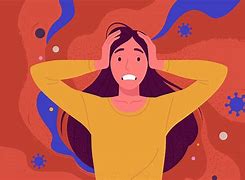According to him, it is important for people to know how to prevent, control and manage stress and depression to ensure their well-being. He expressed the need to identify individual stressors to be able to deal with most of the day-to-day stressors of life.
He said research revealed that, in the African region alone, about 30 million people suffer from depression. Nworie, therefore, called on government at all levels to support mental health programmes by allocating adequate human and financial resources to respond to this growing burden.
“Depression is an illness characterised by persistent sadness, loss of interest and ability to perform daily activities for a period of over two weeks. It is associated with feelings of guilt or low self-worth, disturbed sleep or appetite, tiredness and poor concentration.
“Major causes of depression include loss of loved ones or relationships, poverty, stress, economic challenges, unemployment, physical illnesses, alcohol abuse, drug use and traumatic situations such as violence and war.
“Lack of availability of psychotropic medicines, proper information with well-structured psychotherapy and other effective measures for primary healthcare services to treat depression are cause for concern,” Nworie said.
He explained that economic hardship amid the current Coronavirus pandemic contributed to depression and stress increase in the country.
Nworie said that a depressed person sharing challenges with a psychiatrist or family members could bring relief.
He advised people who were faced with some challenges to learn to share their problems, saying “a problem shared is a problem half solved’’.
“In Nigeria, we are dealing with a lot of issues; businesses are falling, things are expensive, cash is hard to come by and basic amenities are lacking.
“The statistics may not be there, but by observations, people are bottling up emotions and challenges, instead of speaking out.
“There is need for people to speak out, let us not be intimidated and bottle up our anxieties and frustrations; it can result to high level of suicidal tendencies,” Nworie said.
source: Punch

 A psychiatrist at the Federal Neuro-Psychiatric Hospital Yaba, Dr. McEdwards Nworie, has said that proper management of life’s challenges could help to reduce depression and stress. Nworie, who gave the assertion while speaking with the News Agency of Nigeria on Monday in Lagos, said that depression and stress are common and serious mental illnesses that negatively affect the way people feel, think and act.
A psychiatrist at the Federal Neuro-Psychiatric Hospital Yaba, Dr. McEdwards Nworie, has said that proper management of life’s challenges could help to reduce depression and stress. Nworie, who gave the assertion while speaking with the News Agency of Nigeria on Monday in Lagos, said that depression and stress are common and serious mental illnesses that negatively affect the way people feel, think and act.




